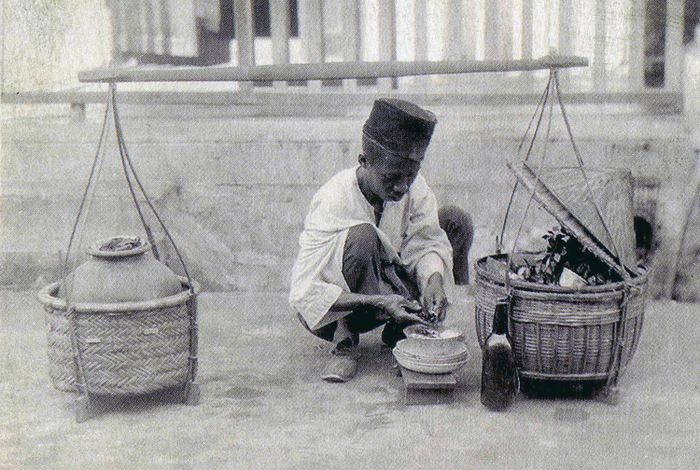Nostalgia: Mobile Hawkers, Accessible and Affordable


By Ian Anderson
Ipoh has an abundance of restaurants – “too many”, some citizens would say, but restaurants are a comparatively new thing for Ipoh as, before Merdeka, all we had were coffee shops and hawkers. The latter were everywhere in and around the town, on busy streets, at road junctions, in back-lanes, outside markets, cinemas and schools. Some had permanent spots where they could always be found at set hours of the day, while others were always mobile, following their same route daily. There was no limit to what could be purchased on the streets. Alas! The mobile hawkers have gone and although we still have so-called hawkers, they are confined to permanent Hawker Centres on the grounds of hygiene and traffic congestion.
Fast Food




Mid-morning was the time for fresh produce from the market. Vegetables on a bicycle and the pork butcher with fresh meat laid out in his trike. Little luxuries were not forgotten either, ice-cream, cigarettes, bottled soft drinks, the Indian milkman (who only delivered to order) and in the late 1950s, even the Milo man and candy floss would be there to cater for the children, as the “Ting Ting Man: had done for many years previously. He tempted them with hard, sweet, toffee-like candy that he broke out of the metal bowl with a metal spoon making that traditional sound.
Who these hard-working people were, we will probably never know, as they only live on as memories. Most were probably unlicensed, but nonetheless, they were a very important part of life as their food and other services were accessible and affordable for the ordinary working family.


